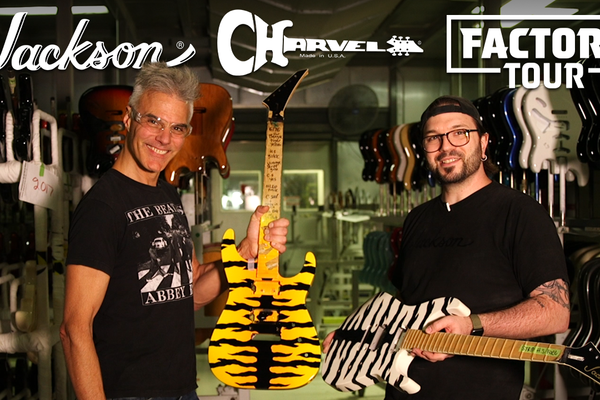
With their first entry into the realm of bass preamps, Port City has produced a well-constructed unit with a straightforward approach.
For a long time, I wasn’t a huge fan of bass rigs with a separate preamp and power amp. I always thought that if I found a head or combo with a preamp I liked, its power stage should work well enough with it. This admittedly limited thinking served me okay for a while—I was able to figure out what I like and don’t like about amps, and then find gear that worked for me—but eventually I had to bite the bullet and find out what all the fuss was about. Plenty of respected companies make separate preamps and power amps used by great players, so there had to be a reason why. What I found out was, for one, some players need a lot more clean, raw power than many heads and combos can deliver. And having all that clean power on hand affords you a lot of flexibility to move from one preamp to another, depending on what the gig or session calls for.
One respected company that’s diving into this sort of bass gear is North Carolina-based Port City Amplification. Builder Daniel Klein’s Wave guitar cabinets are on the road with the likes of Keith Urban, Greg Howe, and David Ryan Harris (John Mayer band), and his boutique amps are gaining ground, too. Klein also makes Wave cabinets for bass, and he has just added the Orleans preamp to his growing line of bass products.
Straight, No Chaser
The handwired Orleans is a no-nonsense preamp without the compressors, DIs, flashing lights, effects, and other bells and whistles we’re accustomed to seeing in a lot of bass gear these days. This fact—along with the Orleans’ minimalist aesthetics—will initially be seen as a shortcoming to some bassists, but a breath of fresh air to others.
The Port City’s solid-aluminum chassis helps keep the preamp light—4 pounds—which is a good thing, since you’ll also be using an external power amp. The front panel has a vintage feel with its pie-piece knobs for controlling the volume, 3-band EQ, and master volume. The Orleans’ back panel is about as simple as it gets: The aluminum plate anchors a hardwired power cable, a fuse receptacle, and a single, unlabeled output jack.
Dance with Me
To test the Orleans, I paired it with a QSC QX3 power amp and an Eden 115XLT cabinet. My test basses were a Sandberg California TM with active electronics, and a passive ’75 Fender P. The Port City’s simple layout and clear-cut controls make it very easy to navigate, so dialing in the Orleans was not difficult at all. I set the EQ at 12 o’clock across the board and was immediately enveloped in warm low end with a bit of midrange bark—a great ’70s punk tone. When I backed off the mids and ever so slightly decreased the treble and bass, the Orleans gave me a vintage fliptop-type tone that made my P bass sound very much at home—it was a sound I would really dig for studio work.
When I initially flipped the thick toggle, I wasn’t very happy with result—my bass suddenly sounded muddy. The thick switch doesn’t behave like a typical exciter, where you set your tone and then thicken it with the exciter circuit afterwards. With the Orleans, I found that you have to think of the thick switch as another part of the EQ and carefully adjust the knobs to complement it. Once I rolled off the bass a little and a dialed in a slight mid boost, the Orleans took a new liking to my P, making it sound even more like they were made for each other. I preferred playing the P without thick engaged, however, because it allowed the bass’ nuances to shine brighter.
Ratings
Pros: Variety of studio-quality tones—from vintage to modern.
Cons: Pricey. Lacks features many players are accustomed to finding in other similar gear.
Tones:
Playability/Ease of Use:
Build/Design:
Value:
Street: $1,299
portcityamps.com
One of the things I liked most about how the Orleans sounded with my ’75 Precision was how it seemed to add 10 years to its lifespan, giving it a truly vintage sound. I wouldn’t necessarily call the Orleans a miracle worker, but if you have a bass that needs a little help, this preamp will color it up very well.
Next I tried the Orleans with my active-pickup Sandberg—again starting with the Orleans’ controls at noon—and the amp handled everything I threw at it. The tone was mostly accurate, although slightly pointed. With the active bass, the amp seemed to react better with the thick switch engaged, enhancing the active tone enough to delight any slap player. The preamp stayed even and true, even when I dug in hard at high volumes, and only broke up when I dimed the volume and lowered the master.
The Verdict
With their first entry into the realm of bass preamps, Port City has produced a well-constructed unit with a straightforward approach. It sounded equally impressive with both passive and active basses, too, yielding everything from warm, vintage-flavors with my Fender P bass to taut, powerful slap tones with my Sandberg. With its spartan features, the Orleans isn’t for everyone—but Port City isn’t building it for the masses, either. This boutique, handwired preamp is sonically rich and will fit in with just about any genre of music, so it is going to appeal to some serious tone hounds out there. The price is certainly boutique, but if you’re passionate about your sound and prefer separate amp-and-preamp rigs, there’s a solid case to be made for reaching past the ordinary and making a visit to Port City.


